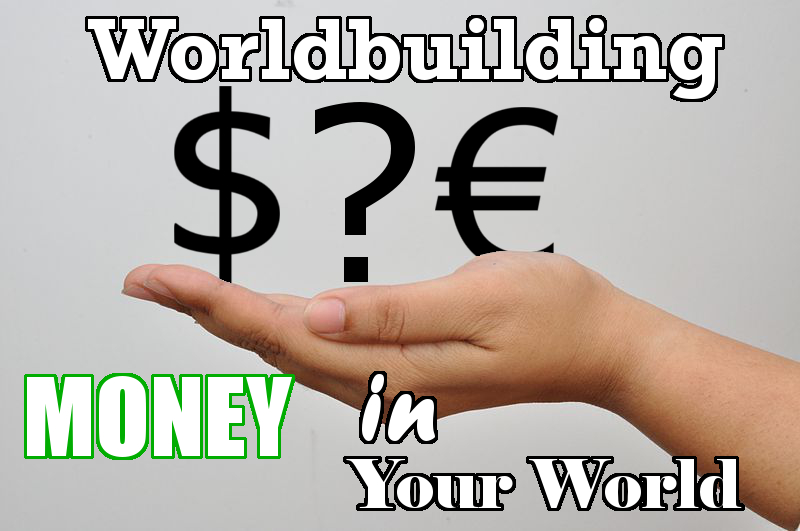
“Excuse me sir, I’d like to buy that sword, a shield, and I’ll be needing salted meats and bread for a five-day journey.”
“That will be $343.49.”
Huh?
Nothing jars a reader out of a scene like a bit of everyday life sneaking into the imagined world they are exploring. For every aspect of life that depict, you need to consider how that aspect would be shaped by your world. If you want obvious parallels to Earth, that’s fine, but for more writers, there is a need to separate the fantasy realm from the mundane world. Currency is certainly no exception.
I’ll break currency systems down into three parts.
The Physical Money
One of the oldest tropes in currency is the gold coin. The problem with that is that gold is relatively rare. A society that trade in hard gold currency is going to need a lot of it. More practical is either a system of multiple different metals, or one based around a metal that isn’t so scarce. Make sure that you use metals that your people have ready access to in large quantities.
Consider the shapes and sizes of the coins as well, or even whether “coin” is the proper turn for your unit of currency. In my Twinborn Trilogy, there are various nations that all mint their own coinage. Most are small, flat, and round as you would think of coins. But one nation mints hexes and squares for different denominations. Another concept from my series is the trade bar, which is a brick of gold roughly the size and shape of a Kit Kat™ bar. Trade bars are a convenient way to carry very large sums of money around.
Give some thought to how easy or difficult it might be to counterfeit, as well. Officials will try to find ways to ensure it can’t be done, but counterfeit money can be a good plot element to bear in mind.
The Concept of Money
What do your people call their money? Is there an official name that differs from colloquial use? Are there differing denominations with different names? Who is the currency named for, or what?
Money is woven into the fabric of a society. It’s going to get nicknamed. People are going to use it in idioms and slang. Rich and poor may have wildly different amounts of it, but everyone uses the same money. Part of the shock of encountering another culture is the realization that their money is different from yours. It looks different, feels different, and you don’t know what it’s worth at first.
Advanced Finances
You can have a very simple financial system with no currency at all; it’s called bartering. While the intricacies of a barter economy make it more complicated than a codified system, in fiction it is a relatively easy system to use. You only need to worry about trades that happen in the text, not about how the whole economy or whether the apothecary can make ends meet when he only charges a hen to set a bone. You can leave it to the reader’s imagination so long as the trades that do appear in the text make sense.
Now, if you’re going for a more advanced society, people are eventually going to start gaming your financial system, probing it for weaknesses, and exploiting them. We call people like that bankers. When you develop a banking system, you have to consider the security of the hard coinage (vaults, counting houses, etc.), the means of loaning money, collateral, and repayment terms. No one is going to lend large sums to an itinerant mercenary, but a woodworker whose family has been in town for generations may find a ready line of credit available to him.
Money-changers are professional middle-men. They take one currency and trade it for another, always pocketing a percentage in the process. Unless they play a plot-critical role though, you can relegate their function to the background. It’s uninteresting for readers.
These same services can be supplied by less than scrupulous individuals as well (regardless of your opinion on bankers and money-changers). Criminals often need loans, and they aren’t the sort of people the bankers will help. Loan sharks (or whatever colorful euphemism your world uses for them) fill that unsatisfied need. They can be a great source of conflict, and great conflict is fuel for fiction. Underworld economics are far more colorful than their more staid, law-abiding brethren.

0 Comments